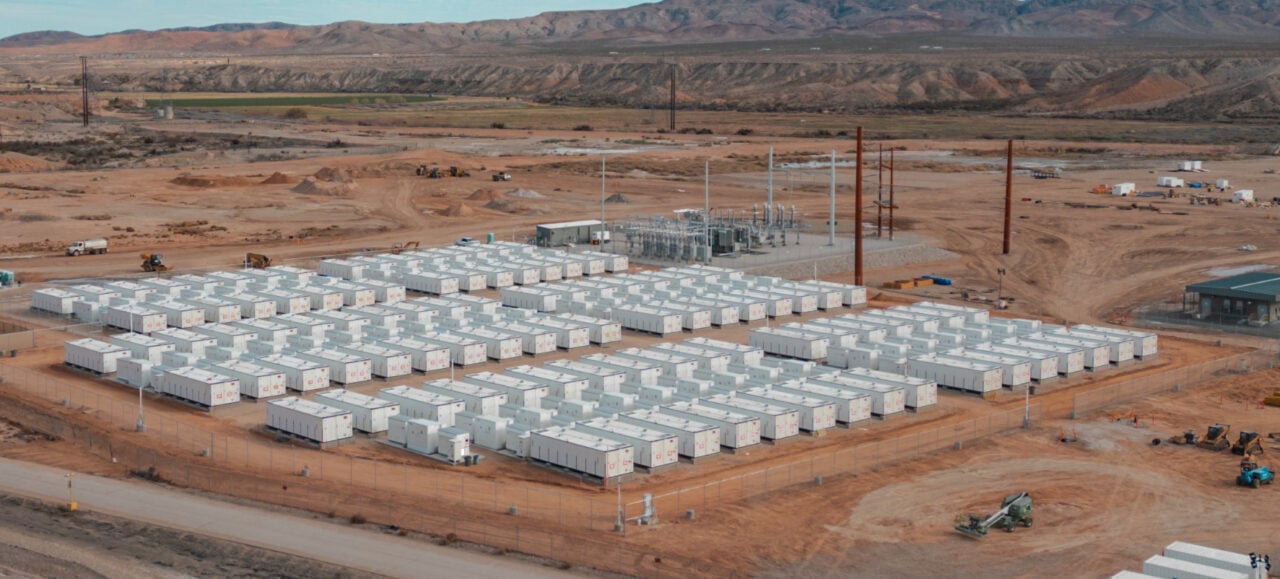
The PUCN has 180 days to scrutinise the plan and either accept the IRP, from the utility owned by Warren Buffet’s Berkshire Hathaway group, or deem it inadequate.
700MW hybrid solar-plus-storage project
The largest of the three PPAs is with Arevia Power covering 700MW of solar energy and 700MW/2,800MWh of BESS capacity from the developer’s Libra Solar project as reported in Energy-Storage.News on June 10 2024 after Arevia Power made a separate announcement covering the agreement.
The two parties have negotiated a 25-year contract whereby NV Energy will pay Arevia Power US$13,350/MW-month for storage capacity for the first 20 years of the contract, and for the final 5 years of the agreement the remaining battery capacity will be available to NV Energy at no cost.
NV Energy negotiated a separate flat energy price associated with the solar portion of the Libra project at US$34.97/MWh for the entire 25-year term of the contract.
Bureau of Land Management-approved solar and storage plant
The second PPA covers 200MW/800MWh of storage capacity and 200MW of solar energy from NextEra Energy Resources’ Dry Lake East Energy Center located 20 miles northeast of Las Vegas in Clark County connecting to the local grid via NV Energy’s Harry Allen Substation.
The Bureau of Land Management (BLM) gave its approval to NextEra in April 2024 to construct the Dry Lake East project which, along with the 200MW hybrid facility, also includes a separate 400MW standalone BESS.
NV Energy will pay NextEra US$13,440/MW-month for storage capacity over a 20-year term, and US$26.78/MWh for solar energy over a longer 25-year period. Commercial operation of the hybrid project is expected in December 2026.
New PPA with 174 Power Global to replace terminated agreement
The 2024 IRP also includes a PPA with 174 Power Global covering 127.9MW of solar energy and 127.9MW/511.6MWh of storage capacity from the developer’s Boulder Solar III project located in Boulder City, Clark County.
An agreement between the two parties covering the same amount of solar energy solar but a smaller 58MW/232MWh of battery capacity from the Boulder Solar III project was already in place as part of the utility’s 2018 IRP but was finally cancelled this year after a series of contract amendments and delays.
The original 12-year agreement, approved by the PUCN in 2020, required Boulder Solar III to be online by December 2023 but following a “variety of project delays”, NV Energy renegotiated the PPA with 174 Power extending the online date to June 2025, as outlined in an NV Energy filing submitted with the PUCN in August 2023.
However, a separate filing submitted with the PUCN in March 2024 revealed that despite amending the original Boulder Solar PPA, NV Energy and 174 Power Global decided to terminate the original agreement.
200% increase in battery capacity price
The new 25-year PPA works identically to the agreement negotiated with Arevia Power, except the price for storage capacity during the first 20 years is slightly higher at US$15,460/MW-month, and considerably higher than the US$6,800/MW-month stipulated within the original Boulder Solar III contract.
Although the terminated agreement and new PPA can’t be compared directly due to differences in contract length and capacity coverage, a 200%+ price increase is still noteworthy, and follows an industry trend of ever increasing capacity prices.
NV Energy will pay US$34.60/MWh for solar energy from 174 Power’s Boulder Solar III project.
NV Energy to own US$1.5 billion project
As part of its 2024 IRP, NV Energy is also seeking approval to add a further two 200MW gas-fired peaking units to its North Valmy Generation Station. The current coal-fired facility is being converted to run on methane (natural) gas after the utility received approval from the Nevada regulator in an amendment to its 2021 IRP to convert the facility at an estimated cost of US$83 million.
Within the 2021 IRP amendment NV Energy was also given the green light to develop a 400MW solar facility co-located with a 400MW/1,600MWh BESS in North Nevada known as the Sierra Solar project.
The utility-owned project is expected to cost approximately US$1.5 billion to develop.
Research group Wood Mackenzie noted in the Q2 2024 edition of its US Energy Storage Monitor report, published this week, that Nevada was the US state to deploy the most grid-scale battery storage in the first quarter of this year, due entirely to the coming online of Gemini, a solar-plus-storage project with a 1.4GWh BESS component.

